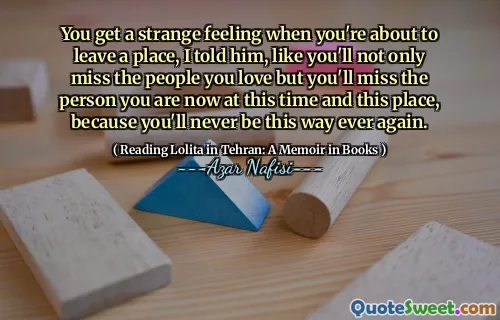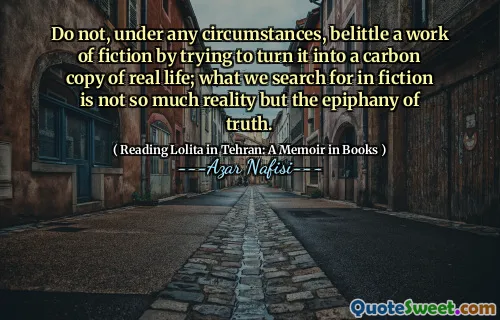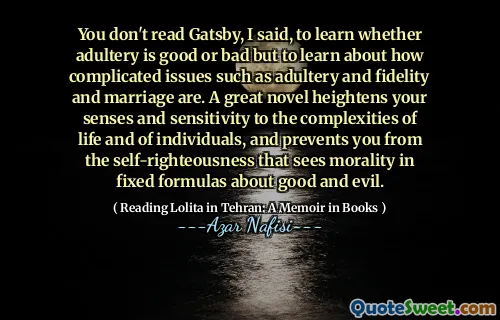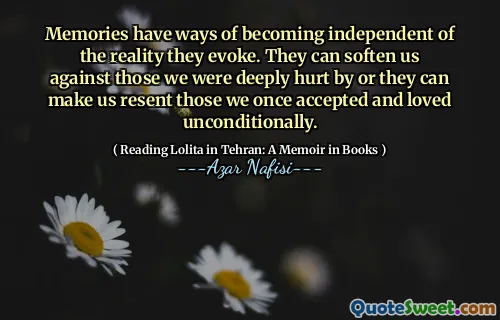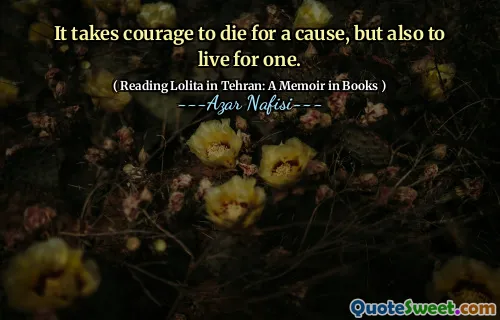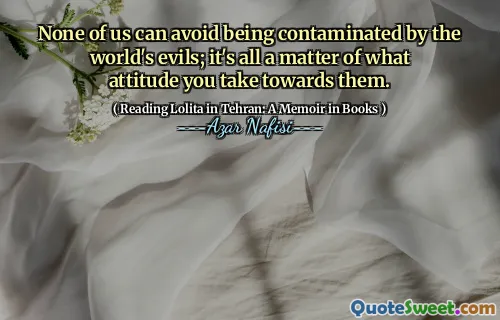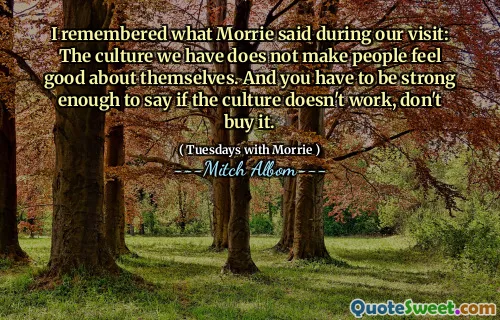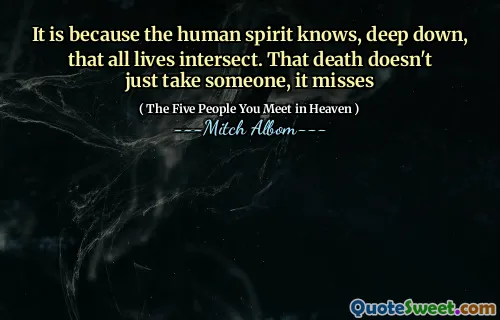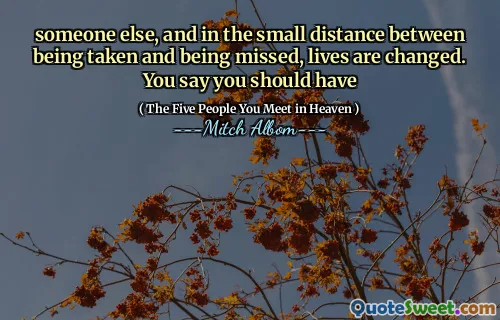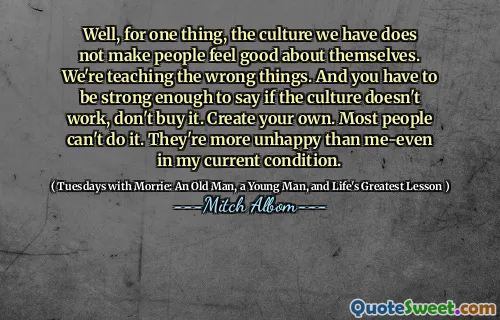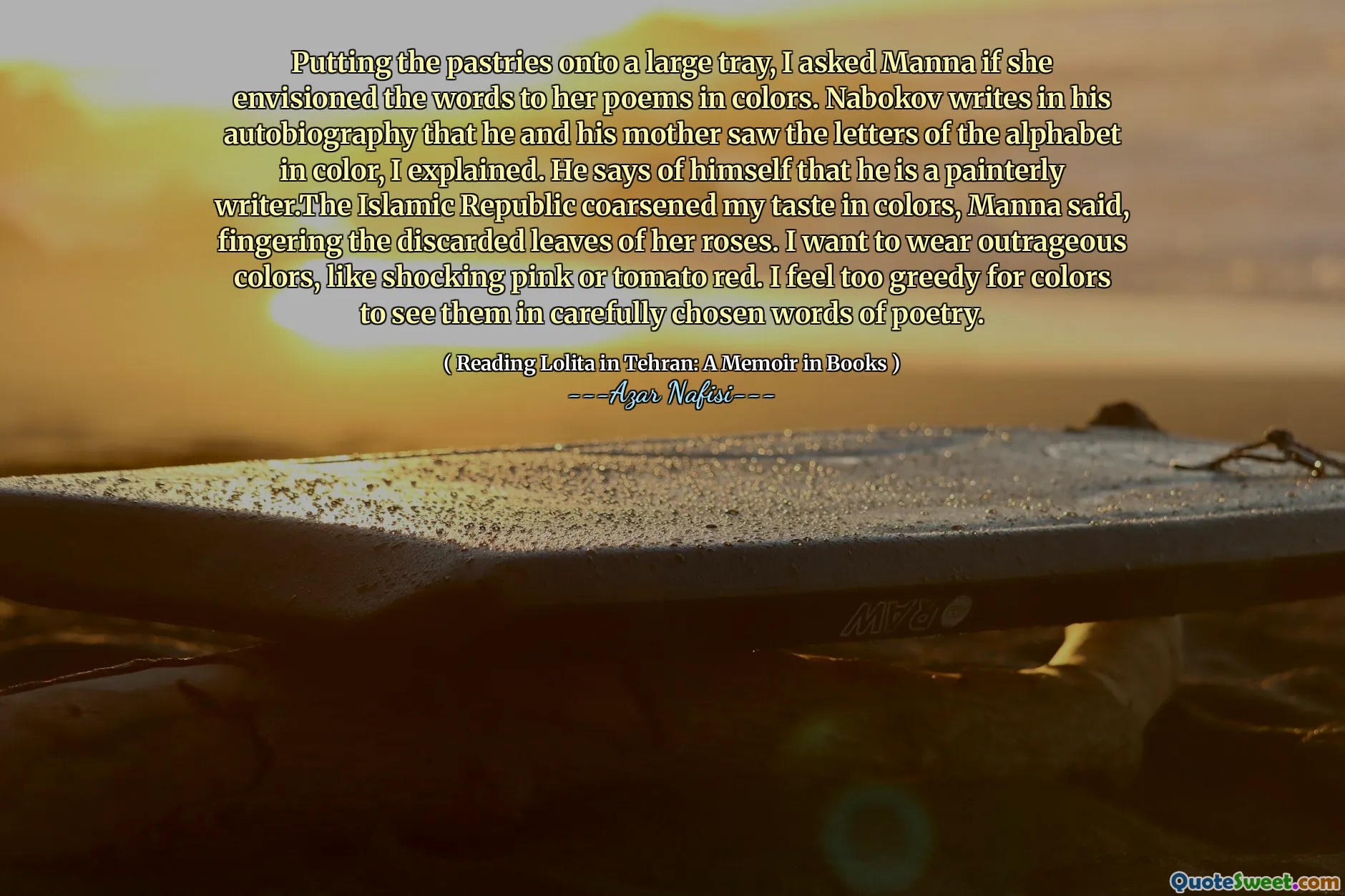
将糕点放在一个大托盘上,我问Manna她是否想象着用颜色的诗中的话。我解释说,纳博科夫在自传中写道,他和他的母亲看到了字母的颜色字母。他说自己是一位绘画作家。伊斯兰共和国使我的颜色变得浓郁,曼纳说,指着她玫瑰的废弃叶子。我想穿着令人发指的颜色,例如令人震惊的粉红色或番茄红色。我感到太贪婪了,无法用精心挑选的诗歌来看它们。
(Putting the pastries onto a large tray, I asked Manna if she envisioned the words to her poems in colors. Nabokov writes in his autobiography that he and his mother saw the letters of the alphabet in color, I explained. He says of himself that he is a painterly writer.The Islamic Republic coarsened my taste in colors, Manna said, fingering the discarded leaves of her roses. I want to wear outrageous colors, like shocking pink or tomato red. I feel too greedy for colors to see them in carefully chosen words of poetry.)
📖 Azar Nafisi
在摘录中,叙述者与Manna讨论了她对诗歌有关的色彩的看法。叙述者引用了纳博科夫(Nabokov)看到字母颜色的经验,这表明艺术与语言之间有联系。曼娜(Manna)反思了她在伊斯兰共和国政权下的艺术敏感性如何变化,表明渴望充满活力和富有表现力的色彩,例如令人震惊的粉红色或番茄红色。
曼娜(Manna)表达了一种对她一生中更大胆的调色板的渴望感,感觉到环境的限制扼杀了她的审美欣赏。她建议,她没有仔细选择诗歌的单词,而是发现自己对颜色的更广阔,几乎贪婪地欣赏。这揭示了艺术表达与在压抑社会中生活的现实之间的紧张关系。
